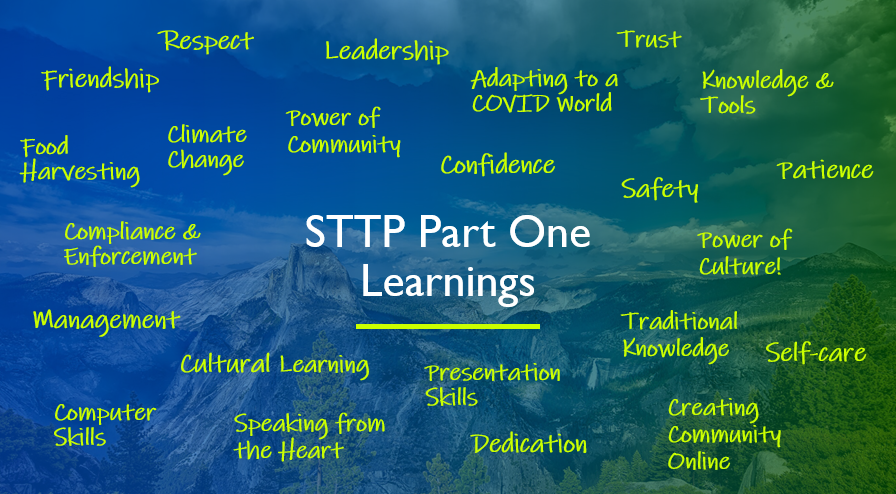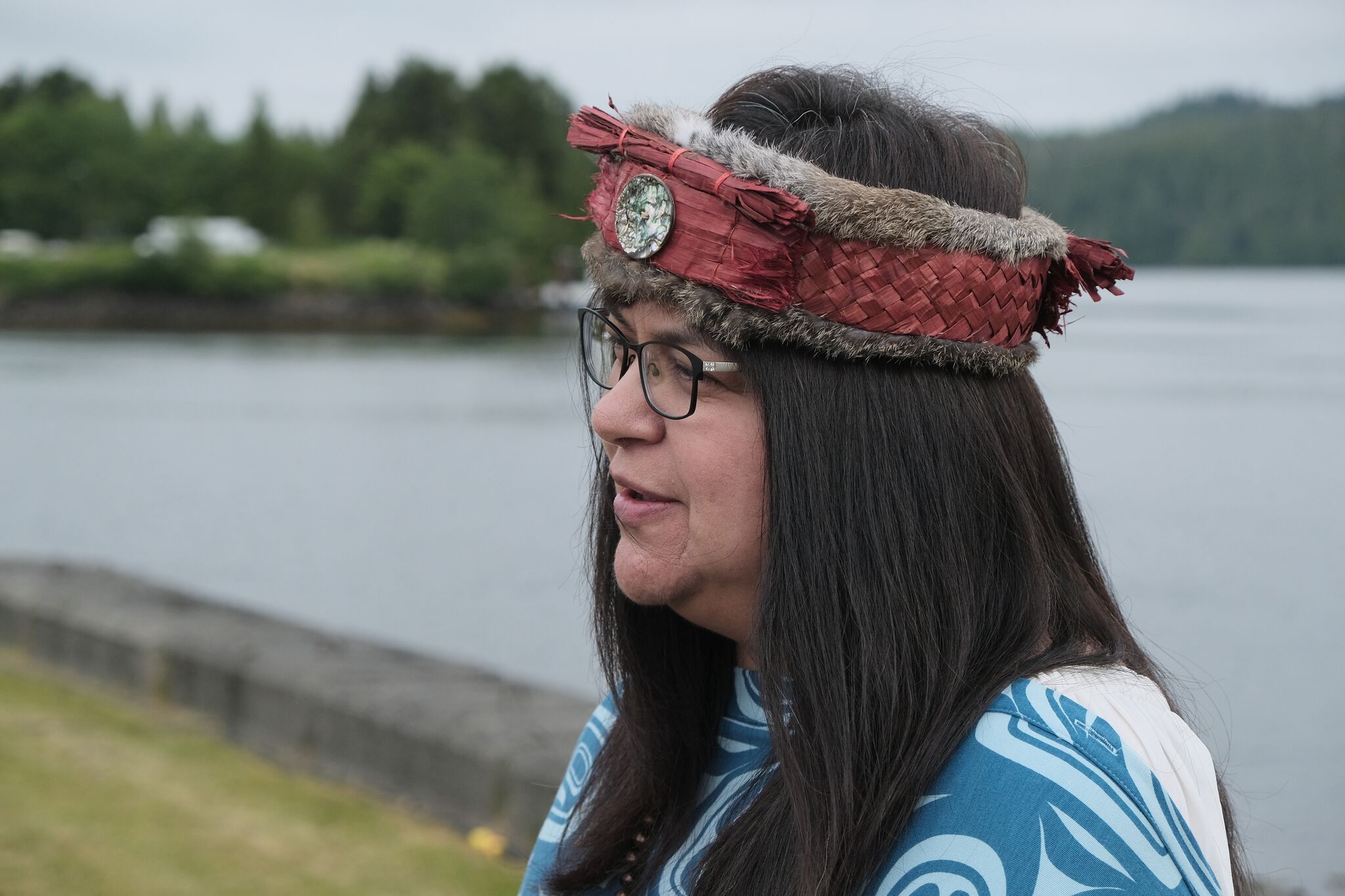As the global pandemic grinds into year two, Guardians and stewards throughout coastal First Nations continue to do the important work they love—protecting and restoring the natural and cultural heritage of their territories.
Although coastal communities have been negatively impacted over the past year with outbreaks, lockdowns and disruptions of “normal” life, vital stewardship efforts must go on in the face of these challenges. That’s certainly true for students of the Stewardship Technicians Training Program (STTP), who’ve been engaged in stewardship learning online since mid-January.
A partnership between Coastal First Nations and Vancouver Island University, STTP has been providing stewardship training for First Nations throughout the North and Central Coast and Haida Gwaii for several years. These courses are usually taught in the field or an in-person classroom setting, but they’ve moved online for the time being to maintain health and safety within coastal communities.
“I know the students would love to meet and learn in person, and they’ve certainly experienced some ‘Zoom burnout’ like everyone else,” says CFN Training Coordinator Jackie Peat, who’s facilitating the sessions, along with guest speakers and educators. “But these online courses have really been a great way for everyone to stay connected with each other during trying times.”
So far, students have focused on courses well suited to online learning, including Leadership and Reading & Writing, Indigenous Culture and History, and Case Studies: Reading & Writing. “The focus on writing skills has been really helpful, because it’s provided another great, virtual way to share knowledge, ideas and important aspects of their culture with one another,” says Peat. “Obviously, every course is going to be preferable in person, but these classes have provided an opportunity to have really meaningful discussions. It sets us up wonderfully for when we’re able to gather in person again.”
A benefit of moving to online training is the increase in computer skills that participants have gained. While Guardian work mostly takes place out on the land and water, it often involves desk-based work. “It’s really amazing to see how participants’ comfort and confidence using computers has increased over the past three months,” says Peat. “The group is learning more computer skills that will help them move into other areas of stewardship work that are more office-based.”
Peat says 11 out of the 14 STTP students are currently Coastal Guardian Watchmen, which means they have much in common and plenty share with each other already. “There is a tremendous amount of knowledge and experience amongst the participants,” she says. “Some of the most meaningful learning has been peer-to-peer, as Guardians share the work they’re undertaking within their own Nations.”


